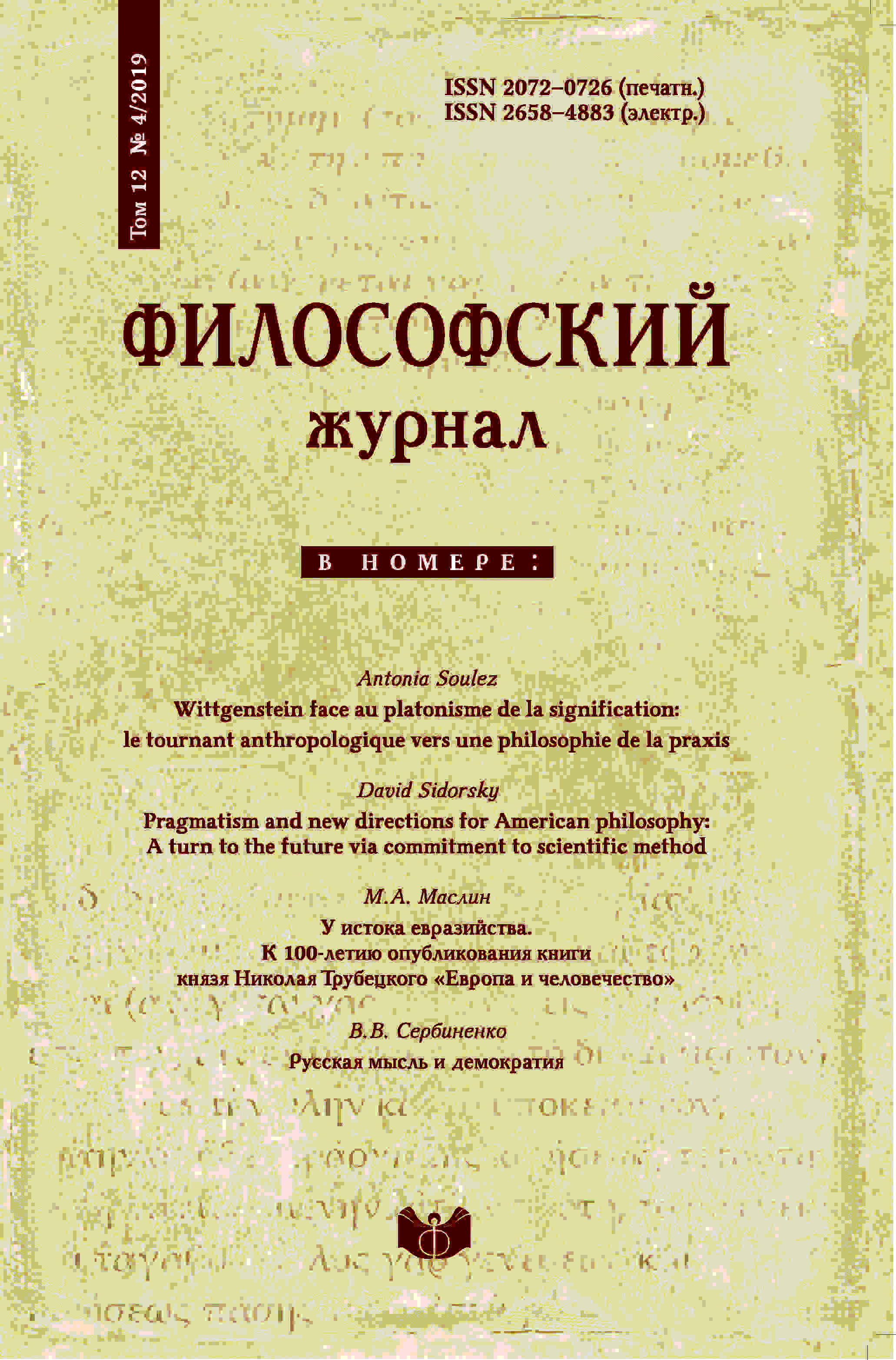Bruno Latour against climate skepticism: the mission of a scientist and the crisis of political institutions
DOI:
https://doi.org/10.21146/2072-0726-2019-12-4-70-84Keywords:
politics of nature, modern, action-network theory, political ecology, climatic skepticism, Anthropocene, sociology of science, Bruno LatourAbstract
The article focuses on the premises of Bruno Latour’s project of creation of a new form of collectivity in which human and non-human actors can participate equally. An adequate incorporation of the nonhuman actors in the process of communication is made possible by their “official representation” by the scientific community. The mission of the scientific community consists in creating “apparatuses of articulation” in order to establish an appropriate interaction with the human actors. A successful realization of this project would lead to a rejection of the paradigm of the modern that is based on the dualism of the object and the subject, the world of things and social realty. In its turn, this rejection motivates the development of networks that determine the conditions that make democracy possible. Democracy will be founded by a new collective of human and non-human actors. The development of this project is complicated by the global obscurantist elites opposed to the overcoming of the ecological, epidemical and social crises in the era of Anthropocene. For this reason, the article analyzes the impact of Latour’s early project of a critical sociology of science on the development of climatic skepticism aimed at discrediting scientific institutions and thus complicating the relations between them and political elites. An overcoming of this crisis should be built on the political philosophy of the French republicanism and a sociology of science that would allow for a renewed political ecology. The new political ecology must provide theoretical grounds for a new social contract within the global collective.






